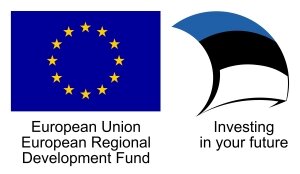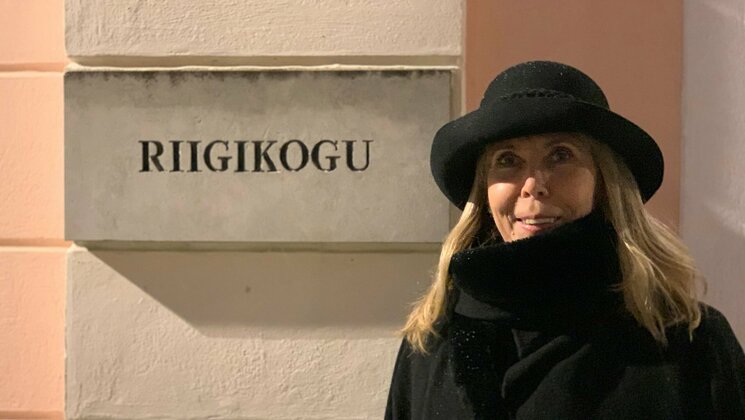-
Faculty of Arts and HumanitiesDean's Office, Faculty of Arts and HumanitiesJakobi 2, r 116-121 51005 Tartu linn, Tartu linn, Tartumaa EST0Institute of History and ArchaeologyJakobi 2 51005 Tartu linn, Tartu linn, Tartumaa EST0Institute of Estonian and General LinguisticsJakobi 2, IV korrus 51005 Tartu linn, Tartu linn, Tartumaa EST0Institute of Philosophy and SemioticsJakobi 2, III korrus, ruumid 302-337 51005 Tartu linn, Tartu linn, Tartumaa EST0Institute of Cultural ResearchÜlikooli 16 51003 Tartu linn, Tartu linn, Tartumaa EST0Institute of Foreign Languages and CulturesLossi 3 51003 Tartu linn, Tartu linn, Tartumaa EST0School of Theology and Religious StudiesÜlikooli 18 50090 Tartu linn, Tartu linn, Tartumaa EST0Viljandi Culture AcademyPosti 1 71004 Viljandi linn, Viljandimaa EST0Professors emeriti, Faculty of Arts and Humanities0Associate Professors emeriti, Faculty of Arts and Humanities0Faculty of Social SciencesDean's Office, Faculty of Social SciencesLossi 36 51003 Tartu linn, Tartu linn, Tartumaa EST0Institute of EducationJakobi 5 51005 Tartu linn, Tartu linn, Tartumaa EST0Johan Skytte Institute of Political StudiesLossi 36, ruum 301 51003 Tartu linn, Tartu linn, Tartumaa EST0School of Economics and Business AdministrationNarva mnt 18 51009 Tartu linn, Tartu linn, Tartumaa EST0Institute of PsychologyNäituse 2 50409 Tartu linn, Tartu linn, Tartumaa EST0School of LawNäituse 20 - 324 50409 Tartu linn, Tartu linn, Tartumaa EST0Institute of Social StudiesLossi 36 51003 Tartu linn, Tartu linn, Tartumaa EST0Narva CollegeRaekoja plats 2 20307 Narva linn, Ida-Virumaa EST0Pärnu CollegeRingi 35 80012 Pärnu linn, Pärnu linn, Pärnumaa EST0Professors emeriti, Faculty of Social Sciences0Associate Professors emeriti, Faculty of Social Sciences0Faculty of MedicineDean's Office, Faculty of MedicineRavila 19 50411 Tartu linn, Tartu linn, Tartumaa ESTInstitute of Biomedicine and Translational MedicineBiomeedikum, Ravila 19 50411 Tartu linn, Tartu linn, Tartumaa ESTInstitute of PharmacyNooruse 1 50411 Tartu linn, Tartu linn, Tartumaa ESTInstitute of DentistryL. Puusepa 1a 50406 Tartu linn, Tartu linn, Tartumaa ESTInstitute of Clinical MedicineL. Puusepa 8 50406 Tartu linn, Tartu linn, Tartumaa ESTInstitute of Family Medicine and Public HealthRavila 19 50411 Tartu linn, Tartu linn, Tartumaa ESTInstitute of Sport Sciences and PhysiotherapyUjula 4 51008 Tartu linn, Tartu linn, Tartumaa ESTProfessors emeriti, Faculty of Medicine0Associate Professors emeriti, Faculty of Medicine0Faculty of Science and TechnologyDean's Office, Faculty of Science and TechnologyVanemuise 46 - 208 51003 Tartu linn, Tartu linn, Tartumaa ESTInstitute of Computer ScienceNarva mnt 18 51009 Tartu linn, Tartu linn, Tartumaa ESTInstitute of GenomicsRiia 23b/2 51010 Tartu linn, Tartu linn, Tartumaa ESTEstonian Marine Institute0Institute of PhysicsInstitute of ChemistryRavila 14a 50411 Tartu linn, Tartu linn, Tartumaa EST0Institute of Mathematics and StatisticsNarva mnt 18 51009 Tartu linn, Tartu linn, Tartumaa EST0Institute of Molecular and Cell BiologyRiia 23, 23b - 134 51010 Tartu linn, Tartu linn, Tartumaa ESTTartu ObservatoryObservatooriumi 1 61602 Tõravere alevik, Nõo vald, Tartumaa EST0Institute of TechnologyNooruse 1 50411 Tartu linn, Tartu linn, Tartumaa ESTInstitute of Ecology and Earth SciencesJ. Liivi tn 2 50409 Tartu linn, Tartu linn, Tartumaa ESTProfessors emeriti, Faculty of Science and Technology0Associate Professors emeriti, Faculty of Science and Technology0Institute of BioengineeringArea of Academic SecretaryHuman Resources OfficeUppsala 6, Lossi 36 51003 Tartu linn, Tartu linn, Tartumaa EST0Area of Head of FinanceFinance Office0Area of Director of AdministrationInformation Technology Office0Administrative OfficeÜlikooli 17 (III korrus) 51005 Tartu linn, Tartu linn, Tartumaa EST0Estates Office0Marketing and Communication OfficeÜlikooli 18, ruumid 102, 104, 209, 210 50090 Tartu linn, Tartu linn, Tartumaa EST0Area of RectorRector's Strategy OfficeInternal Audit OfficeArea of Vice Rector for Academic AffairsOffice of Academic Affairs0University of Tartu Youth AcademyUppsala 10 51003 Tartu linn, Tartu linn, Tartumaa EST0Student Union OfficeÜlikooli 18b 51005 Tartu linn, Tartu linn, Tartumaa EST0Centre for Learning and TeachingArea of Vice Rector for ResearchUniversity of Tartu LibraryW. Struve 1 50091 Tartu linn, Tartu linn, Tartumaa EST0Grant OfficeArea of Vice Rector for DevelopmentCentre for Entrepreneurship and InnovationNarva mnt 18 51009 Tartu linn, Tartu linn, Tartumaa EST0University of Tartu Natural History Museum and Botanical GardenVanemuise 46 51003 Tartu linn, Tartu linn, Tartumaa EST0International Cooperation and Protocol Office0University of Tartu MuseumLossi 25 51003 Tartu linn, Tartu linn, Tartumaa EST0
Workshop with Jouni-Matti Kuukkanen "Why History Matters: The Rational Grounding of Historiography"
From March 19th to 22nd Department of Philosophy is hosting a workshop with Jouni-Matti Kuukkanen based on his award-winning book Postnarrativist Philosophy of Historiography. The workshop includes four public lectures. All the lectures take place at 16:15 in Jakobi 2-336, the titles and abstracts are below. See here for additiona information on the workshop.
Monday, March 19th - Representationalism as a Paradigm and Knowing How
Richard Rorty, Robert Brandom and others have suggested that representationalism in epistemology and the philosophy of language has been a dominant paradigm since the seventeenth century. Pragmatist philosophers specifically have tried to outline an alternative to it. Also in Postnarrativist Philosophy of Historiography I labelled my position as non-representationalist. In this lecture, I consider in some more detail, what it means to make this shift in historiography. My suggestion is that historiography is still taken as knowledge producing activity but that knowledge is defined as being knowledge how, and not knowledge that.
Tuesday, March 20th - Truth-making and Performativity
Truth is an enigmatic concept. Despite this, it holds a special place in our culture. The idea of truth-making theories is a relatively recent attempt to explicate, why our claims and other potential truth-bearers are true. It is that something independent of our theories and us makes them true. In this lecture, I assess the idea of truth-making and use it to express, why truth-making and truth more generally is problematic in historiography. Regarding truth, my position had shifted towards deflationary theories of truth. A still better way to express this is to say that the role of truth-talk is to provide epistemic authority to what is claimed. The focus shifts therefore on the mechanisms that make our claims authoritative.
Wednesday, March 21st - Inferentialism and Conceptualism
The main goal in this lecture is to understand Brandom’s inferentialism in more depth. A key idea of inferentialism is that implicit conceptual contents are made explicit by drawing inferences in a social-discursive situation. Conceptual contents entail and forbid some kinds of inferences, which is playing ‘the game of giving and asking for reasons’ in other words. Another Brandom’s presupposition is that our ordinary use of language is fundamentally normative. But where do our claims get their normative force? What is knowledge in the Brandomnian inferentialist framework? These and many other related questions are studied in detail.
Thursday, March 22nd - Rational Grounding of Historiography
A central question that has inspired my work is: What is historiography for? In other words, what is the fundamental rationale of researching and writing history? I argue that there is no noninferential description and knowledge, and that the dichotomy between pure description (of facts or other matters of fact) and interpretation is false. Instead, the dichotomy should be between old (inferential) and new(er) (inferential) descriptions. Both old and new inferential descriptions rely on different presuppositions, or perhaps on the presuppositions of different times. That all description is inferential is important regarding the rationale of historiography. Historiography at its best is rational criticism, which ‘unmasks’ old descriptions and their presuppositions, and proposes new rationally warranted to replace them.
This event is supported by the University of Tartu ASTRA Project PER ASPERA (European Regional Development Fund).

Read more similar news






